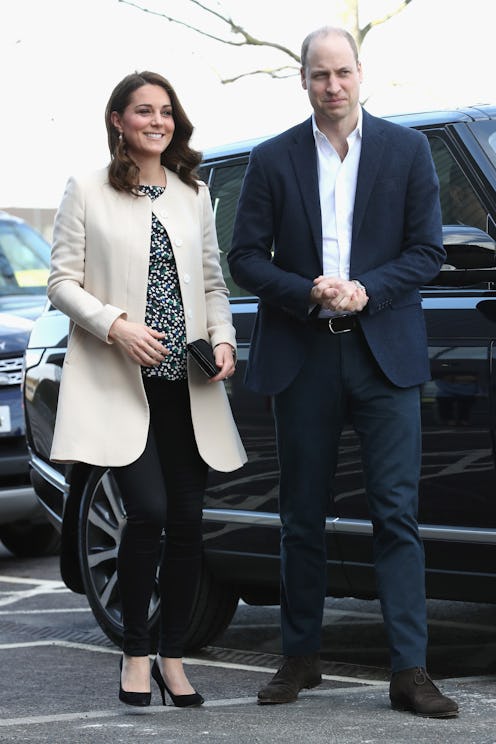News
Everything You Need To Know About Why The Newest Prince Is Named Louis Arthur Charles

The royal family just welcomed a new baby boy on Monday, April 23. And fans' guessing games about the name can officially come to an end, now that it's been revealed the child's name is Louis Arthur Charles. So, what does Louis Arthur Charles mean, at least in relation to Kate Middleton and Prince William?
While it may be new as a first name, Louis has actually been popping up with some frequency as a middle name in royal families for a while now. The new prince's older brother has a Louis in his own full name: Prince George Alexander Louis. And Prince William himself includes Louis among his four given names — William Arthur Philip Louis. And Prince Philip's grandfather was Prince Louis Alexander of Battenberg, Germany.
Fans of the Netflix series The Crown might remember another royal Louis — Louis Mountbatten, aka "Uncle Dickie." He was Prince Philip's uncle, and according to BuzzFeed, also beloved by Prince Charles as an "honorary grandfather." In fact, it was "Lord Louis" who ensured an introduction between young Philip (18) and an even younger Elizabeth (13) in 1939. The two youths began writing letters to one another, and would of course go on to get married eight years later.
Mountbatten was appointed the last British viceroy to India, after serving as supreme allied commander, Southeast Asia command — a crucial naval role that helped defeat Japan's offensive towards India during World War II. He died at the age of 79 in an IRA bomb attack on his home in Ireland.
According to Harper's Bazaar, Louis means "famous in battle, famous warrior." And anyone with a glancing familiarity with European history won't be surprised to learn the name's roots lie in France. Who could forget the long string of King Louis's, the last of whom (King Louis XVI) lived to see the French Revolution ultimately end the line of Bourbon French royalty (and his own life)?
What about the new prince's other names? Arthur should come as no surprise, as it denotes arguably England's most famous, and certainly most legendary, king — who might not have been a real person at all. That's right, theories vary as to when the mythical Arthur lived, who he actually was, where he actually came from, and what he in fact achieved. Tales of Arthur began circulating widely throughout the medieval era, but they were relating escapades of a much earlier time (somewhere between the years 200 and 600 CE, depending on the source).
None of that uncertainty affects the embrace of Arthur within popular imagination — or royal naming habits.
The significance of baby Prince Louis' final name — Charles — is an obvious shoutout to his grandfather, Prince Charles. The name itself means "man" or "strong" according to Baby Center.
The naming of royal babies has not been without plenty of controversy throughout British history. One involves the father of King George III, who Americans may remember as the reigning monarch during the Revolutionary War. King George II wanted to name his second son Louis (!), but his father — King George I — insisted on the name George William. The young Prince George William only lived to three months, after his parents were banished from the court by King George I. Their relationship never recovered from this tragedy, according to historian and author Carolyn Harris.